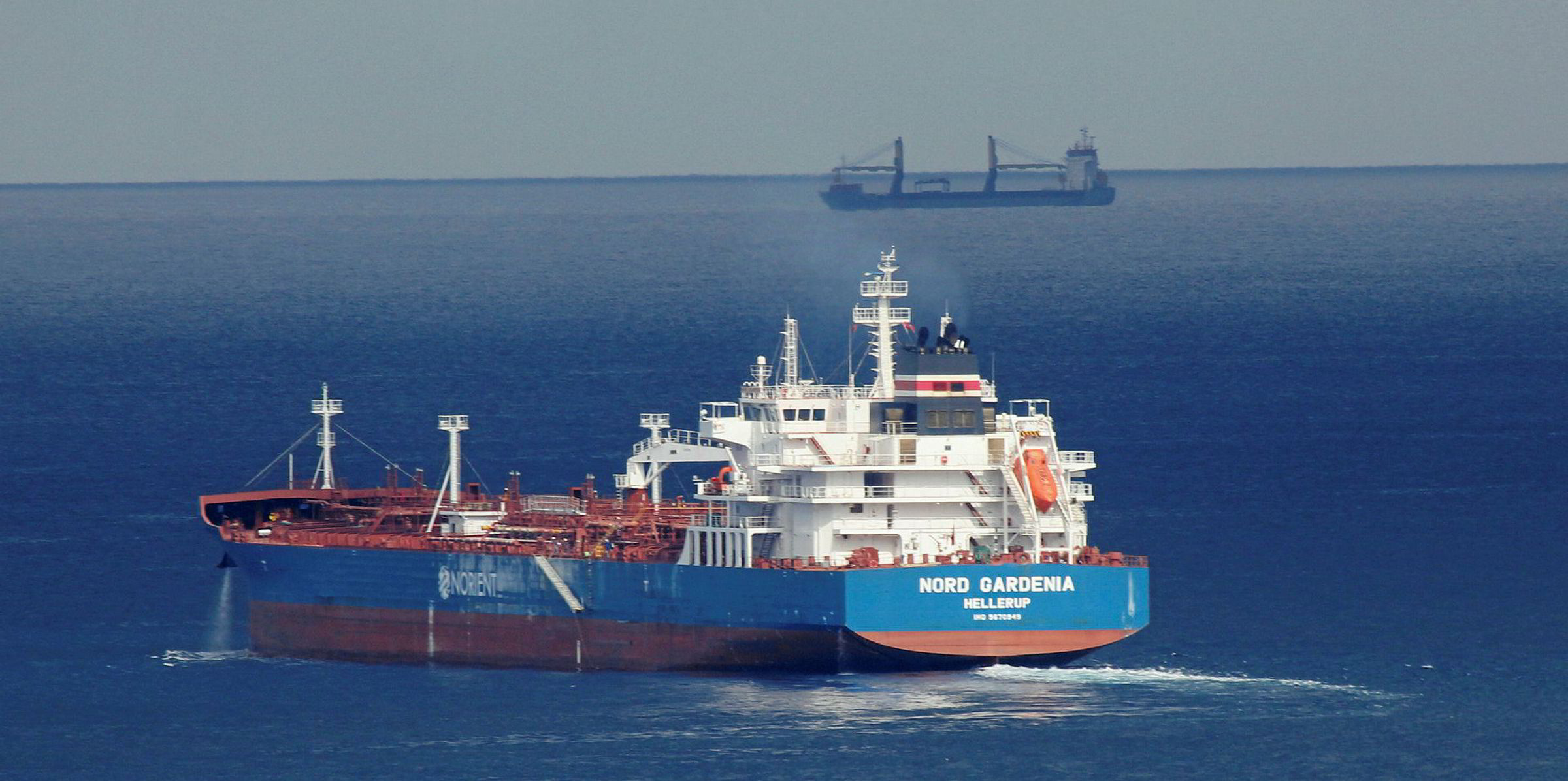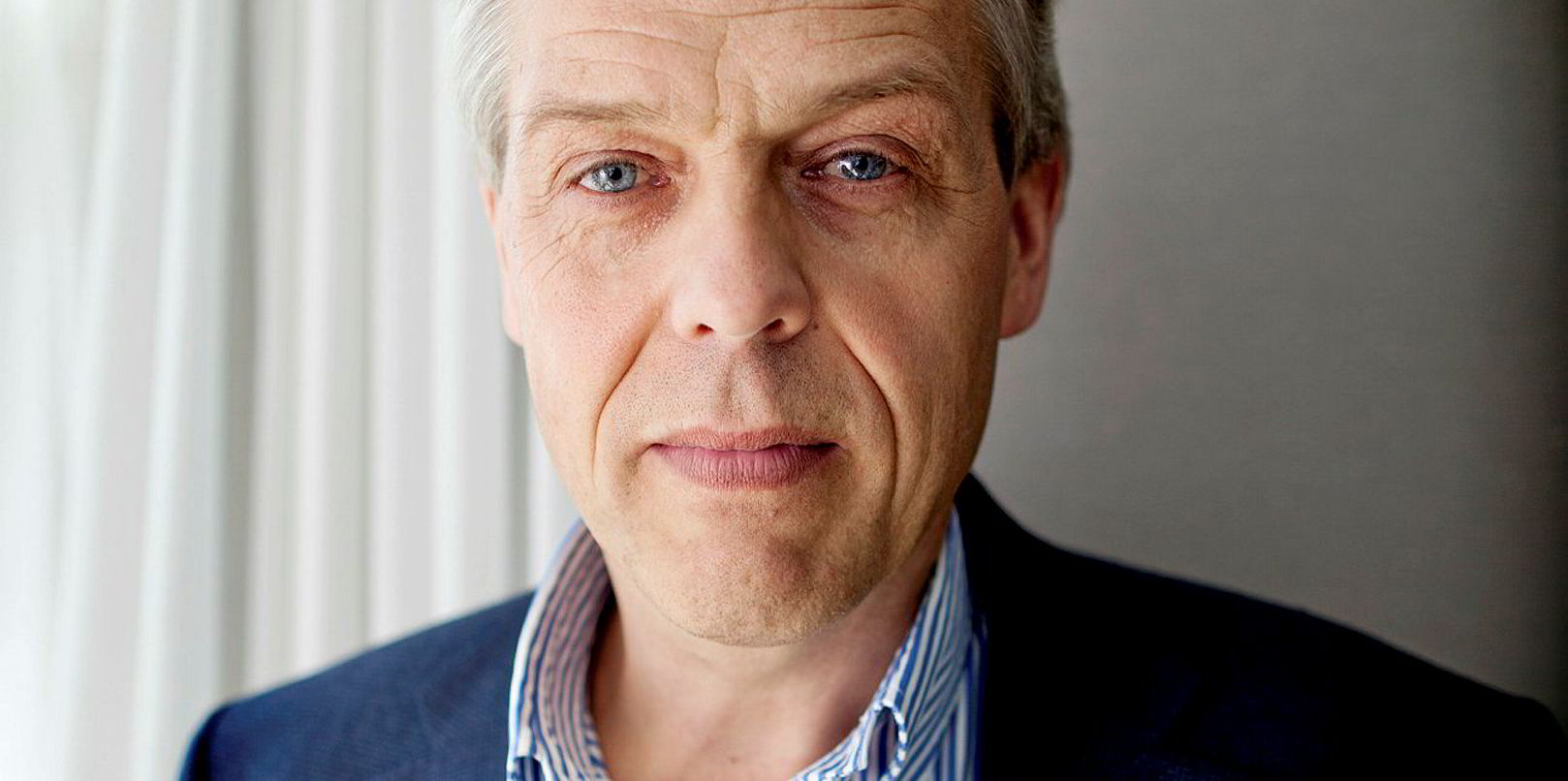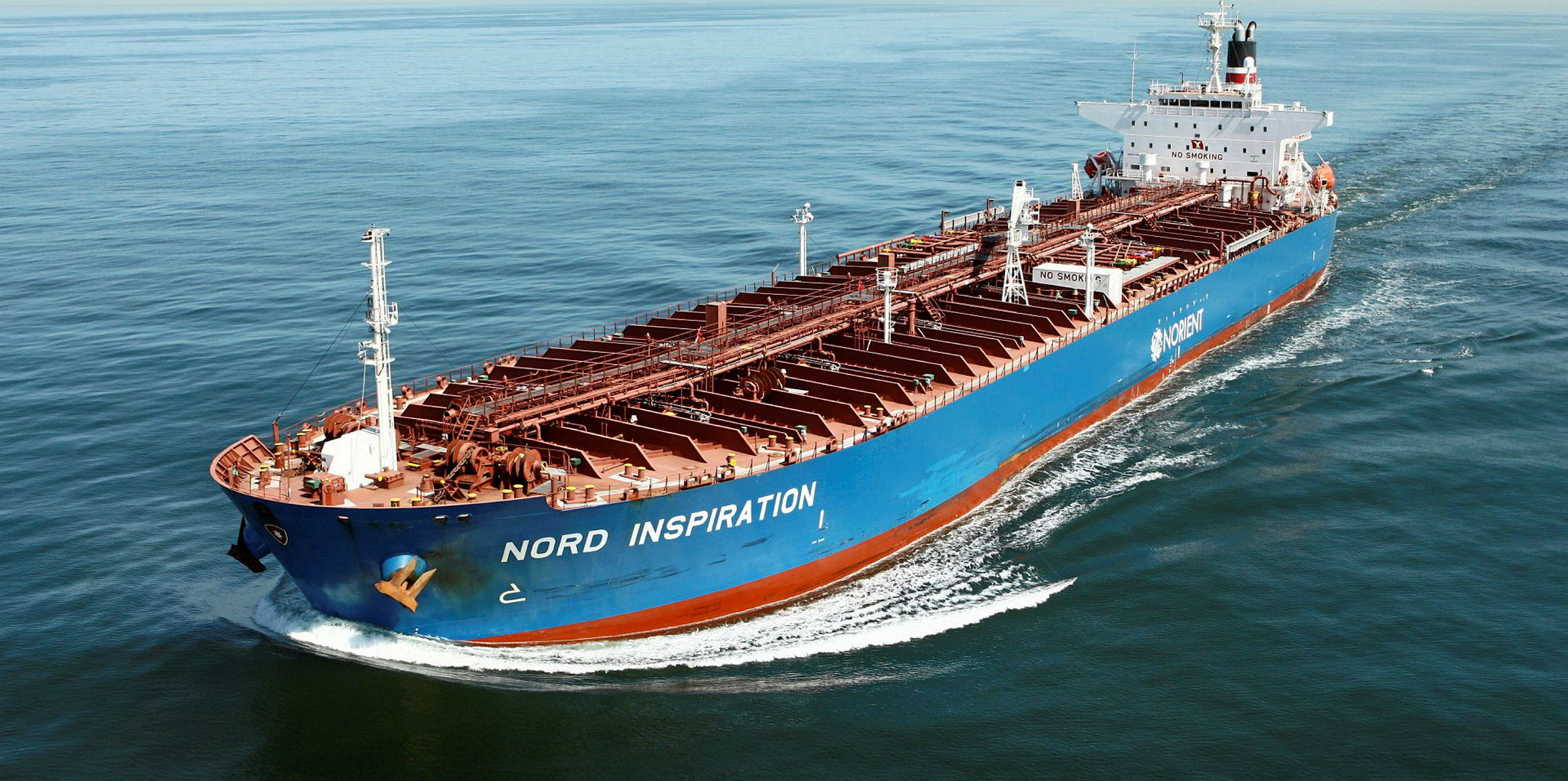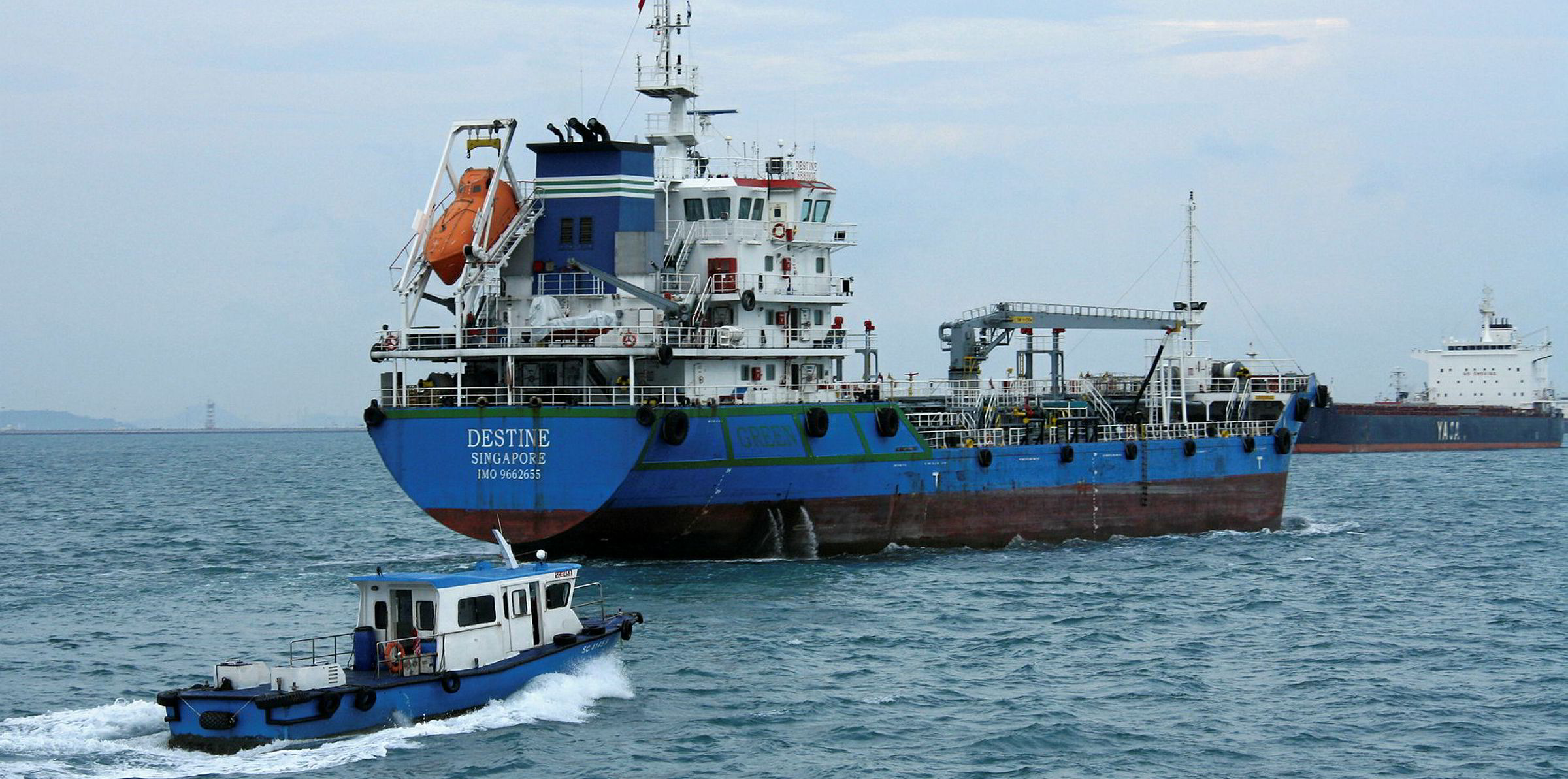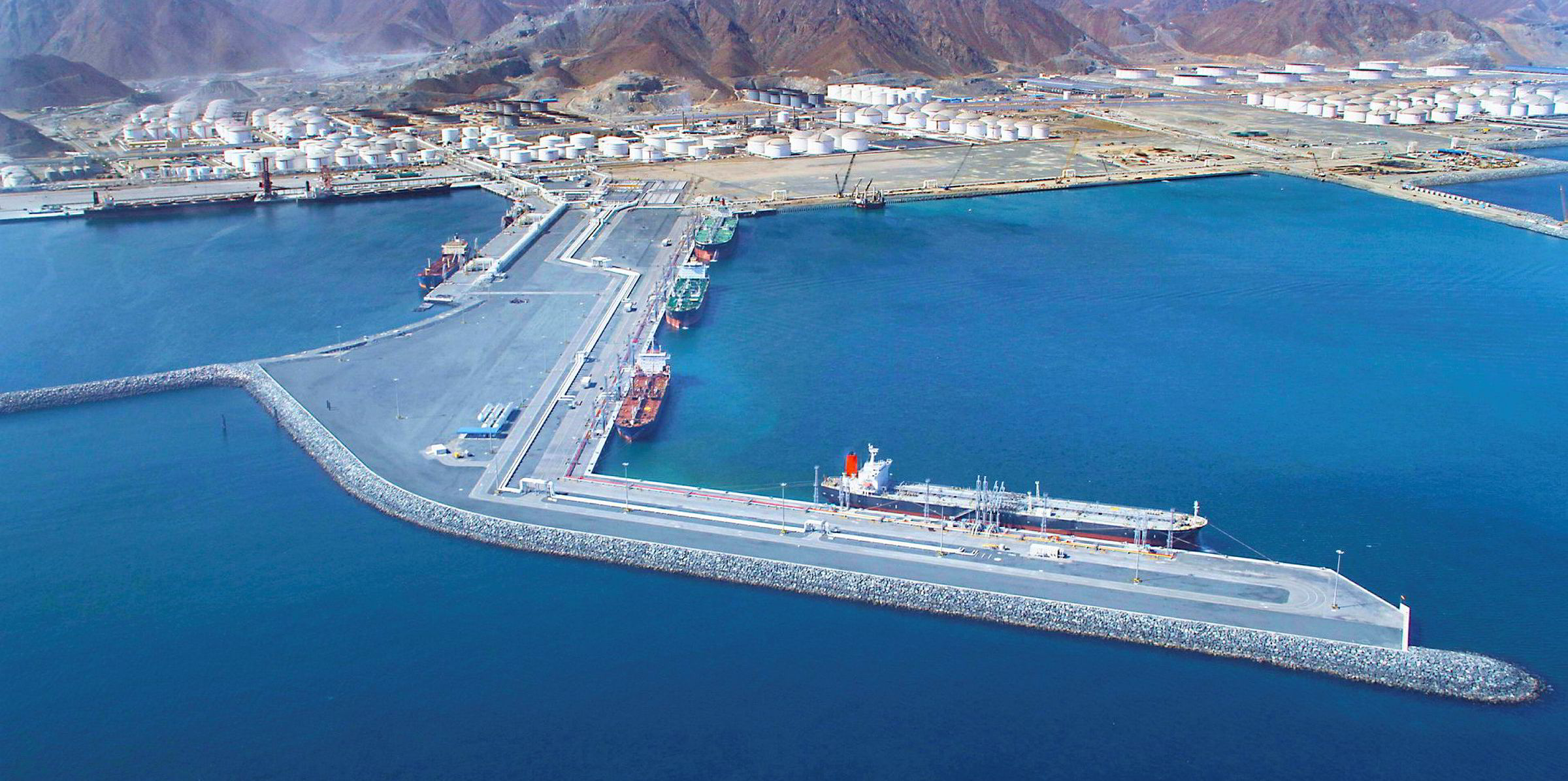Norden chief executive Jan Rindbo is cautiously optimistic, following the shipowner and operator's best first quarter in five years.
"It's been a great quarter and I wouldn't mind repeating it a few more times over the next few quarters in terms of the bottom-line performance," Rindbo told TradeWinds by phone on Tuesday.
"We have profits across all our three business units — and that means that we've also been able to make money in a very difficult dry cargo market and, of course, have been well positioned for a very strong tanker market as well."
Rindbo said Norden's business has proven resilient to the three major economic shocks seen during the quarter — the IMO 2020 marine fuel switch, the crash in oil prices and, of course, the Covid-19 pandemic.
Added to this, the Danish company's bulker and tanker fleets are trading in very different markets.
"But when you have these sort of shocks in the market, you also get the opportunity to look at the trading opportunities between dry cargo and tankers — and we find that very interesting," Rindbo said.
"Of course, you will say that if you were only product tankers right now, wouldn't that be even better?
"But I think the ability to actually trade between dry cargo and tankers in terms of your market exposure is very, very valuable. And this is why, over the last couple of years, we have moved more of our exposure into tankers."
Flexibility versus fixed rates
This is part of Norden's flexible, nimble approach to volatile markets and the company has flagged up its strategy to become more "trading oriented", as TradeWinds has reported.
But one of the company's joint ventures is slightly at odds with this agile approach and Norden was forced to book a $2.3m impairment during the first quarter, following $4.4m in losses incurred by its Polar Navigation joint venture.
The tanker joint venture with Glencore was formed 10 years ago to carry Russian cargoes on ice-classed vessels.
"The joint venture has taken on some very long-term time charter contracts on ships and, of course, in today's market those contracts are not profitable," Rindbo explained.
The deals themselves date back years and were done "in a different market" to today, hence the impairment, he said.
But Norden does not intend to renegotiate the loss-making contracts — as a matter of principle.
“Obviously, we have the financial strength to go through the contracts and we honour the contracts that we do,” he said.
“I think that’s an important part of Norden’s DNA and actually it’s something that is, I think, very important in today’s market — the ability to trust your counterparties.”
"What we find — especially at the moment with a very volatile, very low and very challenging market — is both cargo customers but also tonnage providers are looking for 'safe harbours', and I think Norden is one of those safe harbours in the dry cargo industry."
Second quarter so far
Norden entered the second quarter positioned for a strong tanker market and weak conditions for bulkers — but Rindbo said the coronavirus pandemic has meant any of the usual seasonal expectations for markets have gone out the window.
"In dry cargo, as an example, we are now into the second quarter, which usually sees some seasonal tailwind from the grain markets," he explained.
"Although we are busy carrying grain at the moment, the markets, of course, are very depressed because industrial production and global economies are in lockdown.
"So it's a very tough market right now and we don't see any major changes on the dry cargo side in the short term."
Rindbo said Norden is waiting for authorities to ease social restrictions in Denmark, after which it will finally be able to pay its year-end dividend of DKK 2.5 ($0.36) per share for 2019.
Lockdown in Denmark forced Norden to postpone its annual general meeting, which would have approved the payment to shareholders.

